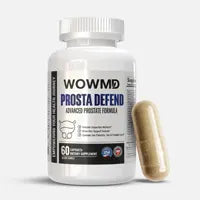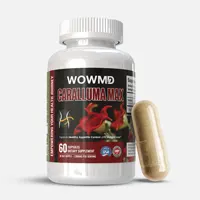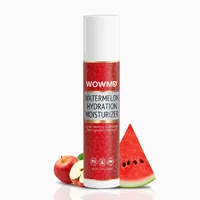How to Lower Cortisol Naturally? with Supplements and Natural Remedies
Discover proven methods to reduce cortisol and manage stress, including diet, exercise, and natural supplements like Ashwagandha, Magnesium, and Vitamin C.
Advertiser Disclosure: WOWMD independently vets all recommended products. If you purchase a featured product, we may be compensated. Learn why you can trust us.
You May Also Like
Popular Stories
- Superfood Greens Powder Uses & Recipes
- The Best Beef Tallow Products for Radiant Skin: A 2026 Guide
- Holy Basil : Ayurveda’s Herb for Balance, Immunity & Everyday Calm
- Best Gel Moisturizers for Hydration & Skin Care in 2026
- 7 Best Effective Supplements for Improving Bladder and Prostate Health in 2026
- 4 Best Cooling Gels for Skin and Body: Instant Refreshment and Relief
References
WOWMD follows strict sourcing guidelines to ensure the accuracy of its content, outlined in our editorial policy. We use only trustworthy sources, including peer-reviewed studies, qualified experts, and information from top institutions.
- Ashwagandha: Is it helpful for stress, anxiety, or sleep? https://ods.od.nih.gov/factsheets/Ashwagandha-HealthProfessional/
- Stress management and the role of Rhodiola rosea: a review: https://pubmed.ncbi.nlm.nih.gov/29325481/
- Vitamin C: https://ods.od.nih.gov/factsheets/VitaminC-HealthProfessional/
- Association of magnesium intake with sleep duration and sleep quality: findings from the CARDIA study: https://www.ncbi.nlm.nih.gov/pmc/articles/PMC8996025/
- Stress, depression, diet, and the gut microbiota: human–bacteria interactions at the core of psychoneuroimmunology and nutrition: https://www.ncbi.nlm.nih.gov/pmc/articles/PMC7213601/
- The effects of physical activity on cortisol and sleep: A systematic review and meta-analysis: https://pubmed.ncbi.nlm.nih.gov/35777076/
- Increasing stress resilience in older adults through a 6-week prevention program: effects on coping strategies, anxiety symptoms, and cortisol levels: https://pubmed.ncbi.nlm.nih.gov/39834757/
- The effects of sustained mild sleep restriction on stress and distress among healthy adults: Findings from two randomized crossover studies: https://pubmed.ncbi.nlm.nih.gov/38342031/
- Meditation interventions efficiently reduce cortisol levels of at-risk samples: a meta-analysis: https://www.tandfonline.com/doi/full/10.1080/17437199.2020.1760727
- Increasing stress resilience in older adults through a 6-week prevention program: effects on coping strategies, anxiety symptoms, and cortisol levels https://pubmed.ncbi.nlm.nih.gov/39834757/
- Meditation interventions efficiently reduce cortisol levels of at-risk samples: a meta-analysis https://www.tandfonline.com/doi/full/10.1080/17437199.2020.1760727
 Alpha Man Power Pack
Alpha Man Power Pack All-Day Fat Burn Trio
All-Day Fat Burn Trio Better Immunity Bundle
Better Immunity Bundle  Calm & Sleep Duo
Calm & Sleep Duo Cognitive Health & Vision Combo
Cognitive Health & Vision Combo Complete Weight Loss Bundle
Complete Weight Loss Bundle Core Vitality Trio
Core Vitality Trio Energy Booster Combo
Energy Booster Combo Focus Fuel Trio
Focus Fuel Trio Glow & Balance Duo
Glow & Balance Duo Health Balance Trio
Health Balance Trio Heart Care Bundle
Heart Care Bundle Joint Health Support Combo
Joint Health Support Combo Men's Immunity & Prostate Health Bundle
Men's Immunity & Prostate Health Bundle Metabolism Boost Duo
Metabolism Boost Duo Natural Skin Care Bundle
Natural Skin Care Bundle Peak Performance Duo
Peak Performance Duo Relax & Recharge Duo
Relax & Recharge Duo Skin Detoxification Bundle
Skin Detoxification Bundle Smart Energy Trio
Smart Energy Trio Stress + Energy + Wellness Combo
Stress + Energy + Wellness Combo  Total Burn Ignite Trio
Total Burn Ignite Trio Total Harmony Pack
Total Harmony Pack Workout Supplements Combo
Workout Supplements Combo











































